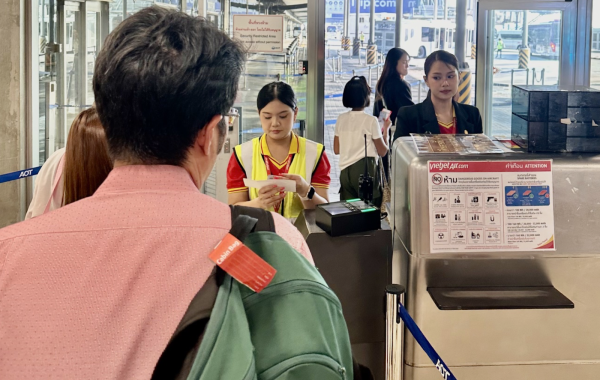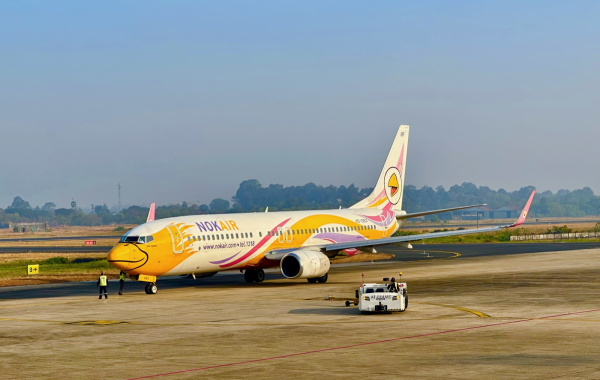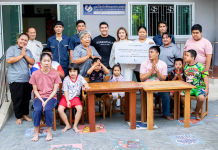BANGKOK, 24 September 2025: Travelling is one of life’s greatest pleasures, and thankfully, it is now once again widely available and reasonably affordable.
Staying safe and secure should always be a priority, whether you are going across the world or simply a few hours from home. In this article, I aim to share some practical advice and common-sense steps that will help you avoid unnecessary risks and give you peace of mind.

Stay connected with your embassy
One of the most overlooked safety measures is keeping your embassy informed about your travels. Many embassies offer traveller registration systems. Signing up allows them to contact you in case of natural disasters, political unrest, or emergencies. Embassies also publish travel advisories and alerts that can prove invaluable when deciding whether to visit certain regions. A simple step like this can make all the difference if situations change quickly while you’re abroad.
Be constantly aware of your surroundings
Awareness is your best defence. In areas with limited visible police presence, always keep an eye on what’s happening around you. Notice who is in front of you, who is behind you, and what’s going on nearby. Criminals often look for travellers who appear distracted. Staying alert — even in busy tourist areas — can help you avoid pickpockets, scams, and uncomfortable situations.
I learned this lesson the hard way in Barcelona, many years ago. I had been warned that Las Ramblas was rife with pickpockets, but I chose to walk down there anyway on my way to the bank to cash traveller’s cheques – a reminder of just how long ago this was. Despite keeping my hand in my pocket to guard my wallet and passport, I was distracted by someone waving a newspaper in front of me. As I lifted my hand to protect myself, an accomplice behind me slipped my wallet out of my pocket. It was done so quickly and smoothly. I didn’t even notice until later. Even when you think you are careful, distractions can catch you off guard.
Carry an emergency first aid kit
Accidents happen when you least expect them. A small, simple first aid kit can make a big difference. You can easily put one together yourself or purchase a ready-made commercial kit. At home, I keep one in my car, and when travelling, I always transfer it to my suitcase. Think of it as your “go-to” emergency kit, ready to help with cuts, sprains, or minor ailments until proper medical care is available.
Keep an emergency cash reserve
Never rely solely on your wallet or main bag for money; these are the first things a thief will target. Instead, keep an emergency supply of cash in a separate, secure location, such as a money belt, a hidden pocket, the lining of your luggage, or, even better, in your hotel safe.
Jewellery may be comforting, but it also attracts attention. Leave your most valuable pieces at home and travel with a simple set that will not break your heart if it is stolen or misplaced. You can also purchase new, inexpensive pieces upon arrival at your destination.
Carrying a spare credit card, stored separately from your main wallet, is another wise precaution. If your wallet is lost or stolen, that extra card can be invaluable. Remember to cancel any stolen cards immediately.
Finally, be especially vigilant with your passport and valuables at airports. These are busy, crowded environments, the perfect setting for pickpockets and opportunists.
Keep family and friends informed
It is always wise to let people know your travel plans. Share your itinerary with trusted family or friends and stay in contact with them. This becomes even more important when travelling to remote areas. If something unexpected happens, having someone who knows where you are meant to be can speed up help and assistance.

Safety needs constant vigilance. I was once caught out in Warsaw while attending a travel show. After dinner at a restaurant near my hotel, I chose to take a shortcut back to my hotel through a wooded area. Unbeknownst to me, it was a hotspot for criminals targeting tourists. A group of men approached me demanding money. Fortunately, I managed to run away and later made a report at the police station.
The officers told me that this area had seen many similar incidents. I wished I had known that beforehand — it reminded me that checking local news and advisories can help you avoid danger zones. I also informed the restaurant and the hotel manager of my plight so they could advise other patrons.

Monitor local and embassy advisories
Staying informed is key. Before and during your trip, keep an eye on embassy travel warnings as well as local news reports. Political demonstrations, natural disasters, or sudden flashpoints can develop quickly. Knowing what’s happening locally helps you avoid unsafe areas and adjust your plans if necessary.
Protect your passport
Your passport is your most important travel document — your lifeline abroad. Always keep it safe and secure. Personally, I travel with a colour photocopy of the passport photo and information page, which I carry separately from the original. If there’s a safe in my hotel room, I store the real passport there and keep only the copy with me. This reduces the chance of losing or damaging it while still ensuring I have the details handy if needed.
Travelling safely doesn’t require paranoia, just a little extra thought and preparation. With awareness, planning, and a few simple precautions, you can enjoy your adventures with greater confidence and peace of mind.
About the Author
Andrew J Wood is a former hotelier, travel writer, and long-time resident of Thailand. A Past President of Skål International Asia, Skål International Thailand, and Skål International Bangkok, he is a regular contributor to the region’s travel and tourism publications, writing frequently about safe, enjoyable, and responsible travel.






